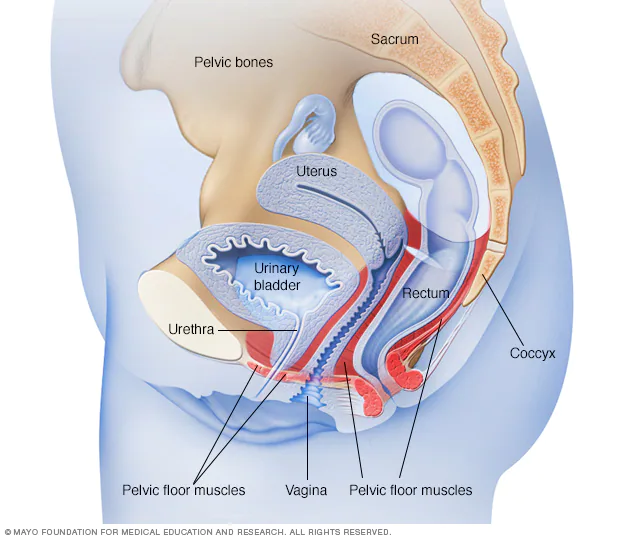
Urinary incontinence is a condition that affects many women, particularly as they age. It is a medical condition where involuntary leakage of urine occurs, which can be a significant source of embarrassment and inconvenience. The condition can have a considerable impact on a woman’s quality of life, affecting her physical, emotional, and social well-being. In this blog, we will discuss urinary incontinence in women, its causes, symptoms, diagnosis, and treatment.
Types of Urinary Incontinence
There are several types of urinary incontinence, including:
- Stress incontinence – This is the most common type of urinary incontinence in women. It occurs when pressure on the bladder increases, causing the bladder to leak urine. This can happen when you cough, sneeze, laugh, or lift something heavy.
- Urge incontinence – Also known as overactive bladder, urge incontinence occurs when the bladder muscles contract involuntarily, causing a sudden urge to urinate. Women with this condition may not be able to make it to the bathroom in time.
- Overflow incontinence – This occurs when the bladder doesn’t empty completely, causing urine to overflow. Women with this condition may experience frequent dribbling of urine.
- Mixed incontinence – This is a combination of stress and urge incontinence.
Causes of Urinary Incontinence in Women

Urinary incontinence in women can be caused by a variety of factors, including:
- Pregnancy and childbirth – The pelvic muscles can weaken during pregnancy and childbirth, leading to urinary incontinence.
- Menopause – The drop in estrogen levels during menopause can cause the pelvic muscles to weaken.
- Aging – As women age, the muscles that control urination can weaken, causing incontinence.
- Obesity – Excess weight can put pressure on the bladder, leading to urinary incontinence.
- Chronic coughing – A chronic cough can put pressure on the bladder, causing incontinence.
Symptoms of Urinary Incontinence in Women
The symptoms of urinary incontinence in women may include:
- Involuntary leakage of urine
- Feeling the need to urinate frequently
- Waking up at night to urinate
- Difficulty emptying the bladder completely
- Diagnosis of Urinary Incontinence in Women
To diagnose urinary incontinence, your healthcare provider will perform a physical exam and ask you about your symptoms. They may also perform tests, such as a urine analysis and urodynamic testing, to determine the type and severity of incontinence.
Treatment of Urinary Incontinence in Women
The treatment of urinary incontinence in women depends on the type and severity of the condition. Treatments may include:
- Pelvic floor exercises – These exercises can strengthen the muscles that control urination.

Bladder training – This involves training your bladder to hold urine for longer periods.

Medications – There are several medications available that can help treat urinary incontinence.
Surgery – In severe cases, surgery may be necessary to treat urinary incontinence.
Intravesical Botox, Vaginal tape TOT procedure and Surgery for correcting organ prolapse (Sacrocolpopexy) are three different treatments used to treat urinary incontinence.
- Intravesical Botox is an injection of a toxin that relaxes the bladder muscles and increases their capacity, allowing for greater storage of urine.
- The vaginal tape TOT procedure involves inserting a small piece of tape into the vagina to support the pelvic organs and reduce stress on the urethra.
- Surgery for correcting organ prolapse: known as Sacrocolpopexy, is a surgical procedure that repairs weakened or damaged tissue in order to restore normal functioning of the organs in the pelvic area. Each treatment has its own advantages and disadvantages depending on each patient’s individual needs and circumstances.
Conclusion
Urinary incontinence is a common condition that affects many women, particularly as they age. It can have a significant impact on a woman’s quality of life, affecting her physical, emotional, and social well-being. If you are experiencing symptoms of urinary incontinence, it is important to talk to your healthcare provider to determine the cause and appropriate treatment options.
